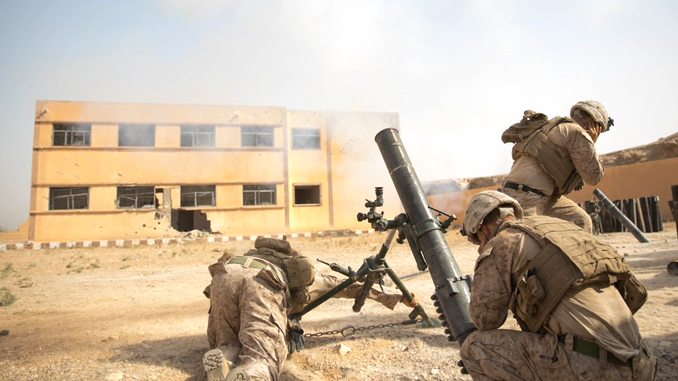
I was going to write a piece on the expected announcement by President Trump this morning about Abu Bakr Al-Baghdadi’s death. When I started, though, I realized Tiff already had something prepped.
So, with the knowledge that I won’t have to touch on any of the basics (go read Tiff’s story, or hit some of the major news sites for that) I’ll just jump in with a little perspective: it’s minor news.
It’s always good when a mass-murderer who’s wandering around is caught, dead or alive. And when the leader of a movement that’s working to attack America is taken down, it’s positive for America. In this case, it’s a boon for the world, because ISIS is focusing on other places as well. This is absolutely news.
However, the fact is that we have been told by the President and his supporters that ISIS is no longer a threat, that they have been destroyed. It’s not true; the only thing that was destroyed was their physical footprint in terms of owned land, but many ISIS fighters were killed in the battles and their leadership was scattered.
This is why we supported the Kurds so strongly, until recently abandoning them. It’s also a reason why the abandonment of the Kurds and tarring them as communists and terrorists was particularly unjust.
A leader is important, though. Stopping a force has a great effect, but a leader can provide inspiration and a rallying point. When Hitler’s body remained hidden for a while after World War II, some Nazis harbored secret hopes that they could somehow reform and yet emerge triumphant. When Saddam Hussein was found in his spider hole, his trial and execution provided a sense of closure for the Iraq war. When bin Laden’s compound was taken out by special forces, Al Qaeda’s operations were crushed.
For perspective, I remember exactly where I was when I heard that bin Laden was dead, and I cheered, even though I was irritated by Obama’s presentation of it. We’d suspected he was in that compound for months and even at that, Obama had hedged on attacking it. I was critical of the decision-making process, while being simultaneously pleased by the action. Taking out bin Laden, who was still actively coordinating Al Qaeda movements, was very important. I don’t remember where I was when I head that Saddam had been caught, because it truly wasn’t that important to me; he’d already been defeated, that was just dotting the i and crossing the t, completing the operation. I was pleased that our soldiers and President Bush had a sense of completion, but the hard work had long been over.
It’s possible that Baghdadi’s death is a significant event, then; the corresponding death of bin Laden certainly was. Unfortunately, the truth is that this is more in keeping with the death of Saddam Hussein.
ISIS was, and is, a two-front operation. The first front has failed utterly, and that is to seize an immediate location for the creation of an Islamic state, a new Caliphate. It’s in the name, it’s what the first “IS” represents and it’s why “ISIL” (Islamic State in the Levant) is sometimes used instead.
This was the group which swore fealty to Baghdadi and looked to him for guidance in all things. They are the people who were already shredded by coalition forces aiding the Kurds on the ground in Syria and Iraq.
The second front is a terrorist theory of disrupting and destroying all non-Islamic societies and forcing them to accept Islam as their dominant political and religious structure. That aspect of ISIS is the one which is still operative.
ISIS, outside of the physical attempt at a direct state, operates in a cell structure, like a virus. It is a murderous philosophy which encourages the subordination of life, and it spreads its appeal on those levels, not through any allegiance to Baghdadi. Those operatives will, for the most part, accept any eventual Caliph, whether he be Shia or Sunni, Baghdadi or Erdogan, Bin Salman or one of the Mullahs in Iran. They’ll be much happier with a Shia or Sunni ruler, but the key will be that they ascribe to a repressive interpretation of Islam.
Baghdadi’s death will have virtually no effect on that second front of ISIS agents, because due to their construction as independent cells they have not needed him. They act, and then after having acted they declare their affiliation.
So, yes… minor news. The leader of a group of rampant torturers and murderers is dead, after the group had been completely broken up and defeated. Certainly a good day for the world. But, while it might have made a difference at the beginning of the ground fight against the group, the effective strategic value of the death approximates zero right now.
The true American value of his death should be the same as it was for Saddam: a moment of well-earned closure for those who fought his ground troops, and saw their friends and allies injured and dead from that fight.
The President will crow about it in a half an hour, and the Republicans will attempt to pretend that this proves that somehow abandoning the people who did much of the heavy lifting taking out ISIS is justifiable. The Democrats may echo my sentiments, because they’re rational, or they may just attack Trump’s over-the-top methods of disseminating the information or any one of a dozen of other things. All of those have some political value, but in terms of practical value, any one of a dozen stock market or legal moves made in the last month have more of an effect on the U.S. and the world than does the death of Baghdadi.

1 Trackback / Pingback
Comments are closed.